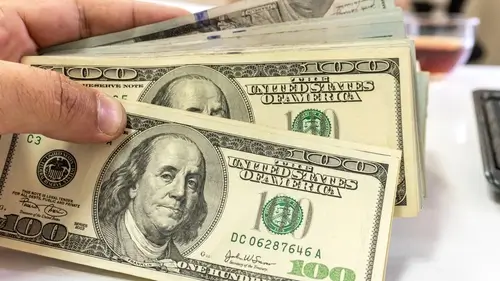The VA home loan benefit is an incredible opportunity for Veterans and active-duty Military members, offering no down payment in most cases and competitive interest rates.
While the VA program is known for its flexibility, especially compared to conventional loans, securing approval for your dream home often involves more than just meeting the basic eligibility criteria.
This is where the concept of “cash reserves” becomes vitally important. For Veterans and Military families, having readily accessible funds, even when not explicitly required by VA guidelines, can significantly strengthen your mortgage application, act as a powerful compensating factor, and provide peace of mind throughout the homeownership journey.
What Exactly Are Cash Reserves?
In the context of a mortgage, cash reserves refer to liquid or near-liquid assets that a borrower has available *after* closing on the loan, beyond the funds needed for the down payment (if any) and closing costs. These are funds that can be easily converted to cash to cover unexpected expenses or potential mortgage payments if an unforeseen financial hardship arises. For Veterans, understanding and documenting these reserves is a strategic move to present the strongest possible financial picture to lenders.
- Liquid Assets: Funds readily available for immediate use.
- Post-Closing: Reserves are what's left after all closing-related expenses.
- Financial Cushion: Act as a safety net for future financial stability.
Why Do Lenders Care About Cash Reserves for VA Loans?
While the VA does not always mandate cash reserves, individual lenders often have their own guidelines. Lenders are in the business of assessing risk, and a Veteran's ability to manage unexpected financial events is a key part of that assessment. Cash reserves demonstrate to a lender that you have the financial stability and foresight to handle unforeseen circumstances without jeopardizing your ability to make mortgage payments. This is particularly relevant for Veterans and Military families who might experience transitions in employment or income post-service.
Here’s why lenders value reserves, especially for Veterans:
- Mitigating Risk: Reduces the lender's risk profile, making you a more attractive borrower.
- Demonstrating Stability: Shows responsible financial planning beyond just monthly income.
- Compensating Factor: Can offset other potential weaknesses in your application, like a higher debt-to-income (DTI) ratio or a less-than-perfect credit history.
- Unexpected Expenses: Provides a buffer for home maintenance, repairs, or temporary loss of income.
Connecting Cash Reserves to Your Credit Profile and VA Loan Qualification
Strong cash reserves significantly bolster your overall financial profile, which is particularly beneficial when securing a VA loan. Lenders assess various factors, and your credit score is a key component. While the VA doesn't set a minimum, lenders do. Understanding the minimum credit score needed for VA loans is essential.
Even if you've had challenges, it's possible to get a VA home loan with a 580 credit score, though competitive rates often require higher scores. Your credit score directly impacts VA loan rates, so strong credit saves money over the loan's life. It's helpful to distinguish between consumer scores and the mortgage credit scores lenders use.
For those aiming to improve their standing, learning how to improve credit for a VA loan is crucial. If you've made recent improvements, consider exploring rapid rescores for VA mortgage credit.
Beyond credit, your income and Debt-to-Income (DTI) ratio are vital. Lenders will assess your qualifying income for a VA loan, including how they may gross up certain VA benefits. If you're active duty, understanding how military pay is used for VA loan qualification is key.
You can also calculate your own DTI ratio. Most VA loans go through an automated underwriting system, but some cases, especially with unique financial situations, may require manual underwriting for a VA loan. Cash reserves can be a significant advantage in these more complex scenarios, particularly for Veterans navigating a VA loan with bad credit.
VA Loan Specifics: When Are Reserves Required or Highly Beneficial?
Unlike some other loan types, the VA loan program generally does not mandate cash reserves for single-family homes or duplexes that will be your primary residence. This is a significant benefit for Veterans. However, there are specific scenarios where reserves become a requirement, and many others where they simply provide a powerful advantage:
Required Scenarios for Veterans:
- Multi-Unit Properties with Rental Income: If a Veteran is purchasing a multi-unit property (3-4 units) and intends to use the projected rental income from the other units to qualify for the loan, the VA typically requires 6 months of principal, interest, taxes, and insurance (PITI) in reserves. For 1-2 unit properties where rental income from an existing rental property is used, 3 months of reserves might be required.
- Jumbo VA Loans: While not universally required by all lenders, some lenders may impose cash reserve requirements for VA jumbo loans (loans exceeding the VA's county loan limits where the Veteran does not have full entitlement). These requirements can vary significantly by lender.
- Specific Lender Overlays: Many lenders have their own internal "overlays" or additional requirements beyond the VA's minimums. These overlays might stipulate cash reserves for certain situations, such as a Veteran with a lower credit score, a higher-than-average DTI ratio, or a complex financial history that pushes the loan into manual underwriting.
Highly Beneficial Scenarios for Veterans (Compensating Factors):
Even when not explicitly required, having a robust amount of cash reserves acts as a powerful "compensating factor" for Veterans. This is especially critical in situations where your loan file might have a perceived weakness, prompting a manual underwrite.
- Higher Debt-to-Income (DTI) Ratio: If your DTI is at the higher end of what lenders typically accept (e.g., above 41% but within VA's flexible limits), significant cash reserves can show the underwriter that you have the financial buffer to handle your debts even with a larger portion of income going to housing. The VA places significant emphasis on residual income, and reserves can further bolster confidence in your ability to manage.
- Less-Than-Perfect Credit History: For Veterans who might have isolated derogatory marks on their credit report or a limited credit history, demonstrating substantial reserves can indicate financial maturity and an ability to recover from past issues or manage finances without extensive traditional credit.
- Self-Employment or Variable Income: Veterans who are self-employed or have income that fluctuates (e.g., commission-based) may find that cash reserves provide extra assurance to lenders about their ability to make payments during leaner months.
- Reduced Residual Income: While the VA strongly focuses on residual income, if your calculated residual income is borderline, having ample cash reserves can help alleviate lender concerns.
- Investment Property Financing (Non-VA): While a VA loan is primarily for a primary residence, if a Veteran owns other investment properties (financed conventionally), lenders will often require reserves for those properties as well.
Types of Acceptable Cash Reserves for VA Loans
Not all assets qualify as cash reserves. Lenders look for liquid or easily liquefiable funds that are clearly documented and "seasoned" (meaning they've been in your account for a certain period, usually 60 days, to ensure they're truly yours and not a recent loan or unverified gift). For Veterans, common acceptable sources include:
- Checking and Savings Accounts: The most straightforward and preferred type of reserve. Lenders will require statements (typically 60 days) to verify balances and seasoning.
- Certificates of Deposit (CDs): Easily convertible to cash, though they might incur a penalty if withdrawn early.
- Stocks, Bonds, and Mutual Funds: These can be counted as reserves, usually at a percentage of their value (e.g., 70-80%) to account for market fluctuations and liquidation time. Documentation of ownership and recent statements will be needed.
- Vested Retirement Accounts (e.g., 401(k), IRA): A percentage of the vested balance (the amount you could access without penalty if you were to leave your job) may count, often up to 60-70%. Lenders will need statements and verification of vested amounts and accessibility. Funds only accessible at retirement or job termination typically do not count. The U.S. Department of Labor provides information on retirement plans.
- Cash Value of Vested Life Insurance Policies: Similar to retirement accounts, the amount you could borrow against or withdraw from a vested life insurance policy can sometimes count as reserves.
- Trust Accounts: Funds held in verifiable trust accounts where the borrower has immediate access.
Funds that generally do not qualify as reserves include unvested retirement funds, stock options, physical cash (cannot be verified), and unverified gift funds (unless specifically structured as a gift *for reserves* with proper documentation, which is rare for reserves as they must be the borrower's funds). For detailed acceptable asset types, borrowers can consult resources like the Fannie Mae Selling Guide (even though it's conventional, it outlines common asset standards). Remember that Veterans and Military members should discuss specific assets with their VA loan specialist. For more information on VA mortgage cash reserves for Veterans.
Calculating and Documenting Reserves for Veterans
When lenders speak of reserves, they typically quantify them in terms of months of your proposed PITI payment (Principal, Interest, Taxes, and Insurance). For example, if your PITI is $2,000 per month and a lender requires 3 months of reserves, you would need $6,000 in acceptable liquid assets after closing.
The documentation process is critical for Veterans:
- Bank Statements: Provide statements for all accounts holding reserve funds, usually covering the most recent 60 days. All large deposits will need to be sourced and explained to ensure they are not undisclosed loans.
- Investment Account Statements: For stocks, bonds, or mutual funds, recent statements showing account ownership and value are necessary.
- Retirement Account Statements: Provide statements that clearly show the vested balance and terms of withdrawal. A letter from the plan administrator may be required.
- Letters of Explanation (LOX): You may need to provide LOXs for any significant, non-payroll deposits or unusual activity on your statements.
Your VA loan specialist will guide you through exactly what documentation is needed for your specific situation. Diligent record-keeping by Veterans is paramount.
Cash Reserves vs. Down Payment: A Crucial Distinction for Veterans
It's important for Veterans to understand that cash reserves are distinct from a down payment. One of the most significant benefits of the VA home loan is the ability to purchase a home with no down payment in most scenarios. Even if you choose to make a down payment, your cash reserves are still expected to be separate funds available after that payment and all closing costs are covered. This distinction highlights the unique advantage the VA loan offers, allowing Veterans to retain their savings for financial security rather than tying it up in a down payment.
Strategies for Building Cash Reserves for Veterans
If you're a Veteran looking to purchase a home and realize the value of strong cash reserves, here are some practical strategies to help you build them:
- Create a Budget and Stick to It: Track your income and expenses to identify areas where you can cut back. The Federal Trade Commission (FTC) offers resources on budgeting.
- Automate Savings: Set up automatic transfers from your checking account to a dedicated savings account each payday. Even small, consistent contributions add up.
- Reduce Discretionary Spending: Evaluate non-essential purchases like dining out, entertainment, and subscriptions.
- Boost Income: Consider side gigs, selling unused items, or picking up extra shifts if possible.
- Save Windfalls: Direct tax refunds, bonuses, or unexpected financial gains directly into your reserve fund.
- Avoid New Debt: Resist the urge to take on new credit card debt or personal loans while saving for a home. This can help both your reserves and your DTI.
- Utilize Military Benefits: If you receive non-taxable Military benefits like VA disability or BAH, carefully budget them to free up more funds for savings.
The Bottom Line: Reserves Empower Veterans
While the VA home loan program is incredibly flexible and often requires no down payment, cash reserves play a critical role in strengthening a Veteran's mortgage application. Having a healthy reserve fund demonstrates financial responsibility, provides a safety net against unforeseen circumstances, and acts as a powerful compensating factor that can help overcome other potential weaknesses in your financial profile.
This can even open doors to other mortgage strategies, like exploring an FHA alternative to a VA loan for Veterans if needed, or planning to refinance FHA to VA loan for Veterans down the line. Additionally, a stronger financial standing makes options like a non-occupying co-borrower FHA loan more accessible.
For Veterans and Military members, proactively building and documenting your cash reserves is a smart strategy that can lead to a smoother approval process, better loan terms, and ultimately, a more secure and confident path to homeownership.
Always work with a VA loan specialist who can help you understand specific lender requirements and maximize your financial strengths as a deserving Veteran.
Frequently Asked Questions About Cash Reserves for VA Home Loans for Veterans
What are "cash reserves" for Veterans?
Cash reserves for Veterans refer to liquid funds available after closing on a mortgage, used as a financial cushion for unexpected expenses or future mortgage payments.
Are cash reserves always required for a VA home loan for Veterans?
No, cash reserves are generally not a mandatory requirement for single-family VA home loans for Veterans and Military members. However, they may be required for multi-unit properties or jumbo VA loans, and they are always a strong compensating factor.
What are acceptable forms of cash reserves for Veterans?
Acceptable cash reserves for Veterans typically include funds in checking and savings accounts, Certificates of Deposit (CDs), stocks, bonds, mutual funds, vested retirement accounts (e.g., 401(k), IRA, usually a percentage of vested amount), and the cash value of vested life insurance policies.
How do lenders verify cash reserves?
Lenders verify cash reserves for Veterans by requiring bank statements (typically 60 days worth) and statements from other investment or retirement accounts. They will look for consistency and "seasoned" funds, meaning the money has been in the account for a while.
Can gifted funds be used for cash reserves on a VA loan?
Generally, for VA loans, cash reserves must be in the Veteran's name and cannot be gift funds that remain after closing. Gift funds are typically used for down payments or closing costs, not for post-closing reserves.
How do cash reserves act as a "compensating factor" for Veterans?
For Veterans, cash reserves act as a compensating factor by showing lenders an increased ability to handle unforeseen financial events. This can offset other potential weaknesses in a loan application, such as a higher debt-to-income ratio or a less-than-perfect credit history, making the Veteran a more attractive borrower.
How many months of reserves might a lender typically look for?
If required or desired as a compensating factor, lenders might look for reserves ranging from 2 to 6 months of the proposed mortgage payment (PITI - Principal, Interest, Taxes, Insurance). This amount can vary based on the loan's complexity and the borrower's overall financial profile.
Are cash reserves the same as a down payment for Veterans?
No, cash reserves are distinct from a down payment for Veterans. A down payment is money put towards the home's purchase price at closing. Cash reserves are additional funds available *after* all closing costs and any down payment are paid, serving as a financial cushion.
Do cash reserves affect my interest rate on a VA loan?
While cash reserves do not directly determine your interest rate, having strong reserves can indirectly help by making your overall loan profile more attractive to lenders. This might indirectly contribute to qualifying for a more competitive rate, especially if it helps overcome other risk factors.
What if a Veteran has a high DTI? Can cash reserves help?
Yes, for Veterans with a higher Debt-to-Income (DTI) ratio, substantial cash reserves are a very strong compensating factor. They demonstrate to the underwriter that even with a significant portion of income allocated to debt, the Veteran has a financial buffer to manage unexpected expenses and maintain mortgage payments.
Where can Veterans find more information on VA loan requirements for reserves?
Veterans can find more information by consulting their VA loan specialist or by visiting official government and reputable Military-focused financial websites like the VA's home loan site or organizations dedicated to Veterans' financial well-being.








